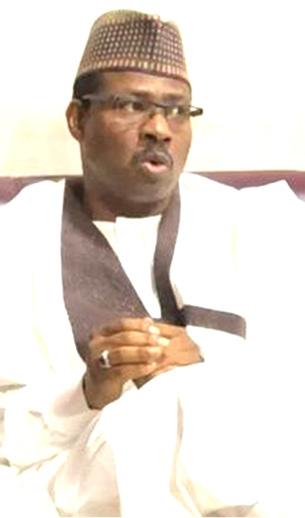‘10 months without wild polio virus and we’d be certified’
Dr. Faisal Shuaib is the Executive Director of the National Primary Health Care Development Agency (NPHCDA). In this interview, he speaks on Nigeria’s progress towards being certified polio free and its struggles with Routine Immunization. Daily Trust: What are some of the most striking findings of the 2016 survey on Routine Immunization coverage and […]

Dr. Faisal Shuaib
Dr. Faisal Shuaib is the Executive Director of the National Primary Health Care Development Agency (NPHCDA). In this interview, he speaks on Nigeria’s progress towards being certified polio free and its struggles with Routine Immunization.
Daily Trust: What are some of the most striking findings of the 2016 survey on Routine Immunization coverage and its relationship with the transparency tenets of this administration?
Dr. Faisal Shuaib: In 2016 the multiple indicator survey for the national immunization coverage survey revealed that only one quarter of children in Nigeria have been vaccinated with the appropriate vaccines for their ages. When you look at a specific antigen, the pentavalent three, as an indicator of the coverage, only 33 per cent of children in Nigeria have received the vaccines at the time they are supposed to. That is a far cry from the minimum 80 per cent expected to build population immunity against vaccine preventable diseases. Of course, these are survey results which are not unusual or new to Nigeria, but another coverage survey has shown that in the last few decades we have not done a good job regarding children’s vaccination.
In the past, governments have turned down survey results, despite methodologists who indicated they followed global world standards. Instead there was a lot of reliance on the administrative coverage. We had coverage figures of over 90 per cent and sometimes over a 100 per cent, so there was a lot of data falsification. But with the advent of this administration, we realized that the methodology that was used to conduct this survey met global standard and were accurate. So, we went ahead and accepted the result. We agreed that the routine immunization coverage was poor. There was also evidence to show that because the coverage was poor, we were having outbreak of diseases.
Year in year out we have outbreak of measles, meningitis, and yellow fever, a clear indication that we were not vaccinating the children correctly. We did accept these results as a true reflection of the coverage figures of Nigeria, and we declared a state of public health concern around this low immunization coverage. We went ahead to set up a National Emergency Routine Immunization Centre at the national level, replicated same at the state and local government level to underscore the fact that we need better coordination of routine immunization activities to improve routine immunization coverage.
DT: Is that what brought about the NERICC, SERICC and LERICC?
Dr. Shuaib: Absolutely. At the National level we have the National Emergency Routine Immunization Coordinating Centre, at the State we have the State Emergency Routine Immunization Coordinating Centre and the Local Emergency Routine Immunization Coordinating Centre.
DT: How far have these strategies improved routine immunization?
Dr. Shuaib: There has been a direct coloration between the setup of these centres and the improvement in the routine immunization coverage. For example, starting from the last quarter of 2017, we did a base line assessment of the routine immunization coverage using what we call the lot quality assurance sampling method, which is really a gold standard in industries to test the quality of different lots. We would go to the settlement to assess how our kids are being vaccinated, see how many kids have been vaccinated, and if there is evidence to show that they were actually vaccinated. We have seen a progressive increase in the number of kids that have been vaccinated, and a progressive number of local government areas all over the country that are being accepted as having adequate number of kids that have been vaccinated. So, we are actually seeing a trajectory that gives us course to be excited about the interventions that we are applying all across the country.
DT: How close are we to being declared a polio free country?
Dr. Shuaib: We are probably 10 months away, if we do not report any case of a wild polio virus during the period, and the certification committee from the World Health Organisation reviews the data and the samples that we have sent out and does a holistic review of the programme. Also, if it is determined that there is zero chance of wild polio virus transmission, then the process for the certification of Nigeria as having eradicated polio will now be activated. So, we feel pretty optimistic that this is exactly what will happen, that we will actually be declared polio free in the next few months, given that we have now gone over 25 months without a single case of wild polio virus.
Usually if a country goes three years without reporting a single case of wild polio virus and there is evidence and surveillance ongoing to search for the wild polio virus and none has been identified, it forms grounds to consider that the country has really eradicated polio. Now we are at 25 months.
